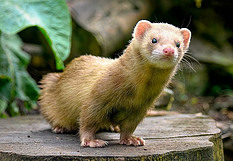Do Worms Have Eyes?
Let’s open that can of worms and get straight to the point…worms do not have eyes, ears, or teeth!

Despite lacking what some might consider vital organs, worms are equipped with remarkable sensory components that allow them to survive and thrive in their environments. Let’s explore their anatomy, how they navigate without sight, and their incredible roles in nature.
Worm Anatomy

Although worms lack the typical features you’d expect on an animal’s head, they do have one! To identify the head, look for the clitellum—a thicker, band-like structure about one-third of the way down the worm. The shorter end closer to the clitellum is the head. Another way to tell is that worms usually crawl forward, leading with their head end.
Worms may not have teeth, but their mouths are surprisingly efficient. They use them to pull in organic matter like leaves, soil, and decomposing material. While toothless, their digestive systems—powered by enzymes and microbes—break everything down effectively.
How Worms Navigate Without Eyes – How do they see?
While worms don’t see in the traditional sense, they are far from blind. These fascinating creatures rely on light-sensitive receptor cells to distinguish between light and dark. This ability is crucial for survival since prolonged exposure to light can paralyze or kill them. That’s why worms instinctively move away from light, spending most of their time underground and emerging only during the dark or damp conditions.
Worms are also equipped with touch-sensitive cells, allowing them to detect vibrations in their environment. For example, they can sense the gentle patter of rain, which signals perfect conditions to surface. Why do they love rain? Worms breathe through their skin, so a moist environment is essential to prevent dehydration. This reliance on moisture is a trait shared with their fellow members of the Annelida phylum, which includes leeches.

What’s their purpose?
Worms can serve many purposes on earth but appear to exist mainly to clean up waste and provide a food source for other creatures. They are absolutely fabulous composters that spend a lot of time cleaning up debris and organic waste by turning it into a fertilizer. Additionally, they tunnel through the ground allowing air to get in.
Worms may seem simple, but they’re ecological powerhouses. Here’s how they contribute to the planet:
- Nature’s Composters: Worms spend their days breaking down organic waste into nutrient-rich castings (worm poop). This natural fertilizer enriches soil, supporting plant growth.
- Soil Aerators: As they burrow, worms create tunnels that allow air and water to reach plant roots, improving soil structure.
- Food Chain Contributors: Worms are a vital food source for birds, amphibians, and other creatures, forming a key part of many ecosystems.
Worms don’t just benefit the environment—they can help you, too! Vermicomposting (worm composting) is a fantastic way to recycle kitchen scraps into nutrient-dense fertilizer for your garden while reducing waste.
If you’re interested in learning more about these cool little critters check out the links below… or get your own worm farm started today! We also have an article on worm reproduction for you!
don’t forget to leave a comment about this post or what you’d like to see next
Recommended sources for further reading
http://extension.illinois.edu/…
http://www.biologyjunction.com…
http://scienceprojectideasfork…
http://www.backyardnature.net/…
FAQ
How do worms see?
Worms don’t see the same way many other animals do, but they can still navigate quite efficiently. These fascinating little creatures are fully equipped with light and touch sensitive receptor cells that allow them to tell the difference between light and dark. The ability to detect light vs dark is crucial for worms as they can become paralyzed and die if exposed to too much light for too long! This is why they tend to move away from light and spend most of their day underground; coming out when it is darker.
The receptor cells also allow worms to feel vibrations caused by rain – worms love moist conditions! As a creature that breathes through its skin a moist environment is crucial for keeping the worm from drying out. Living in a moist environment is fairly typical of their phylum classifications – the Annelida, which also contains leeches.
How do earthworms sense their environment without eyes or ears?
Earthworms lack traditional sensory organs but use light-sensitive cells to detect light and touch-sensitive cells to feel vibrations.
Why do earthworms come to the surface during rain?
Rain creates moist conditions that allow earthworms to move safely above ground without drying out.
What role do earthworms play in soil health?
Earthworms aerate the soil through their burrowing and enrich it with nutrient-rich castings, enhancing plant growth.
Can earthworms survive if cut in half?
While some species can regenerate lost segments, most earthworms will not survive being cut in half.
How do earthworms reproduce?
Earthworms are hermaphrodites, meaning each individual has both male and female reproductive organs. They mate by aligning their bodies and exchanging sperm.
What do earthworms eat?
Earthworms consume organic matter such as decaying leaves, soil, and decomposing plant material.
How long do earthworms live?
In favourable conditions, earthworms can live up to 4-8 years, though in the wild, their lifespan is often shorter due to predators and environmental factors.
Do earthworms have a head, and how can you identify it?
Yes, earthworms have a head. It can be identified by locating the clitellum—a thicker band on their body—and noting that the head is the shorter end closer to it.
Why are earthworms important for composting?
Earthworms break down organic waste into nutrient-rich castings, accelerating the composting process and producing high-quality fertilizer.
How do earthworms breathe?
Earthworms breathe through their skin, which must remain moist to facilitate the exchange of oxygen and carbon dioxide.





This is an interesting article and very informative too. I enjoyed the read. “Do worms have eyes?” is not a question anyone would ask any other day but it is good to know the answer. Now, I can ask my two kids the same question and I will not take a simple yes or no for an answer. This will be fun!
Thanks for sharing!
Thanks Sharon, I hope your kids find it interesting as well 🙂
Thank you so much for this delightful and informative article on whether worms have eyes or not.
I never really thought about it before to tell you the truth. It’s fascinating to find out that this simple little creature has so many natural abilities. I do know that they are excellent composters and you can actually buy kits including the worms.
I’m wondering though. If worms like water and don’t like light, why are there so may worms on the pavement after a rain storm?